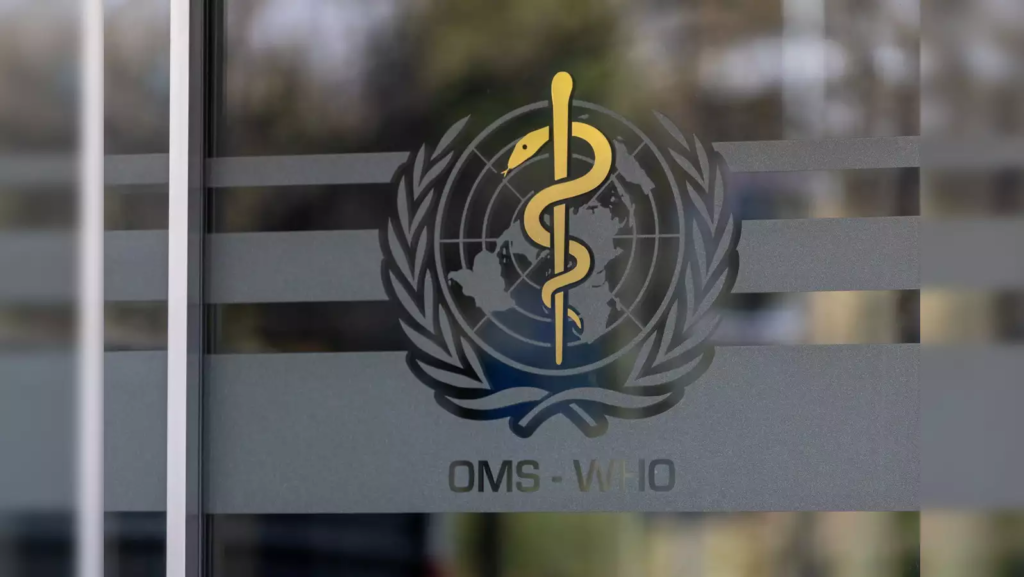Argentina Withdraws from WHO (World Health Organization), following a similar decision made by former U.S. President Donald Trump.
The move, revealed by presidential spokesperson Manuel Adorni, signals Argentina’s stance against perceived international interference in its health policies.
This decision comes at a time when global health organizations play a crucial role in managing pandemics, distributing vaccines, and addressing emerging health threats.
While the announcement has sparked debate within Argentina and the international community, the government under President Javier Milei remains firm in its decision.
Argentina Withdraws from WHO
The announcement of Argentina Withdraws from WHO has sent shockwaves across the global health community. Presidential spokesperson Manuel Adorni stated that President Milei instructed Foreign Minister Gerardo Werthein to officially end Argentina’s participation in the organization.
The decision is rooted in the government’s belief that international organizations should not dictate national health policies or interfere in sovereign matters.
Argentina’s stance reflects a broader trend of nationalist policies and skepticism toward global institutions. Milei, a right-wing libertarian leader, has consistently advocated for reduced reliance on international bodies and greater national autonomy.
By pulling out of WHO, Argentina signals its willingness to prioritize internal decision-making over global health directives. The move is seen as part of Milei’s broader strategy to redefine Argentina’s foreign policy, emphasizing self-reliance and independence.
Read : Russian Missile Attack Damages 6 Embassies in Ukraine Including Argentina, Portugal, and Albania
The decision has drawn mixed reactions domestically. Supporters of Milei argue that WHO’s policies do not always align with Argentina’s healthcare needs and that withdrawing will allow the country to develop independent health strategies.
Manuel Adorni (@madorni) announces Argentina's withdrawal from the World Health Organization (WHO) | "This is due to the profound differences in health management, especially regarding the pandemic, where together with the government of Alberto Fernandez, they led us to the… pic.twitter.com/sLdVcAPXNt
— DutchLibertarian (@LibertarianDuty) February 5, 2025
Critics, however, warn that leaving the WHO could jeopardize Argentina’s access to essential medical resources, global health research, and emergency assistance in times of crisis.
Parallels with Trump’s WHO Exit
Argentina’s withdrawal from WHO closely mirrors the decision taken by former U.S. President Donald Trump. On his first day back in office in January, Trump announced that the United States would no longer be part of WHO.
His administration previously attempted to withdraw from the organization in 2020, citing concerns over WHO’s handling of the COVID-19 pandemic and its relationship with China. Trump’s move was widely criticized by public health experts, who argued that it would weaken the global response to health emergencies.
Milei’s decision appears to be inspired by Trump’s stance on global institutions. Both leaders share a distrust of multilateral organizations, viewing them as bureaucratic and ineffective. Trump’s departure from WHO set a precedent for nationalist leaders worldwide, reinforcing the idea that countries can reject international oversight in favor of national sovereignty.

Despite similarities between the two decisions, there are key differences in the contexts. The U.S. withdrawal from WHO was primarily driven by dissatisfaction with the organization’s handling of the COVID-19 crisis, while Argentina’s decision appears to be more ideological, rooted in Milei’s broader vision of reducing external influence on domestic affairs.
Nonetheless, both exits highlight a growing trend of skepticism toward international organizations among nationalist governments.
Implications of Argentina’s WHO Exit
Argentina’s withdrawal from WHO carries significant consequences for the country’s healthcare system, international standing, and public health policies. One immediate concern is the potential loss of access to WHO-led programs, including vaccine distribution, disease prevention initiatives, and global health funding.
WHO plays a crucial role in coordinating responses to health crises, and Argentina’s exit could limit its ability to benefit from international support in times of need.
Another major implication is the impact on Argentina’s diplomatic relationships. The decision to leave WHO may strain relations with other countries that view participation in global health organizations as essential.
Argentina risks being seen as an outlier in global health discussions, which could affect its ability to collaborate on medical research, public health initiatives, and international healthcare agreements.

Domestically, the withdrawal has sparked debate among healthcare professionals and policymakers. Many experts argue that leaving WHO will make it harder for Argentina to tackle emerging health threats, from infectious diseases to chronic conditions.
The organization provides valuable data, technical assistance, and guidelines that help countries develop effective health policies. Without access to WHO resources, Argentina may face challenges in maintaining high healthcare standards.
However, supporters of the decision argue that Argentina can establish alternative partnerships with other countries and organizations.
Some believe that withdrawing from WHO will allow Argentina to develop more tailored health strategies without external pressure. Milei’s administration has suggested that it will explore new ways to ensure public health remains a priority while maintaining national sovereignty.
As Argentina moves forward with its decision to leave WHO, the world will be watching closely to see how this choice impacts the country’s health sector and global position.
While the long-term effects remain uncertain, Argentina’s withdrawal marks a significant shift in its approach to international cooperation, reflecting a broader trend of nationalist policies gaining traction in different parts of the world.

